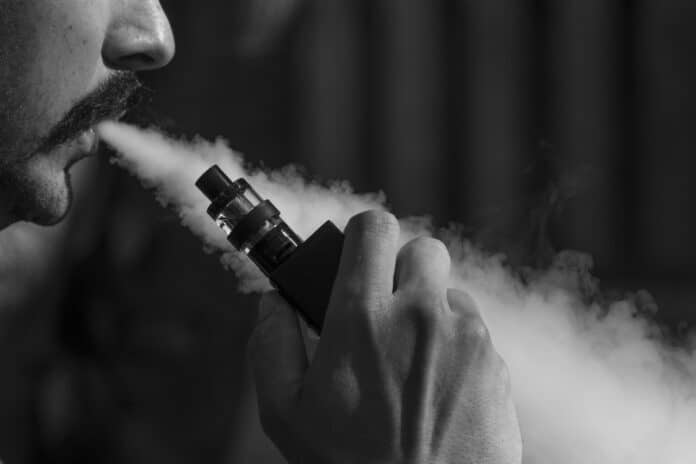Public opinion on e-cigarettes is now divided; some people see them as a helpful tool for quitting smoking, while others worry about possible negative health effects. However, given how nascent the e-cigarette is, it might take decades to understand how using them affects individuals completely. This emphasizes the requirement for thorough preclinical research examining the impact of e-cigarette exposure on health outcomes.
New research from the Research Institute of the McGill University Health Centre (RI-MUHC) supports a growing public health concern about potential adverse health consequences. The study investigated the impact of chronic, low-level JUUL aerosol exposure on multiple lung outcomes. JUUL is a brand of e-cigarettes popular with youth and young adults.
Scientists found that inhaling e-cigarettes can cause cellular and molecular changes that could potentially damage the lungs down the road.
To replicate human exposures, 8- to 12-week-old male and female mice were exposed to commercially available JUUL products. They were told to equivalent to 60 puffs of a mango-flavored Juul per day for four weeks.
After the exposure period, scientists assessed inflammatory markers via qRT-PCR, multiplex cytokine assays, and differential cell count. They also performed proteomic and transcriptomic analyses on samples isolated from the lavage of the lungs; this included unbiased analysis of proteins contained within extracellular vesicles (EVs).
After 4 weeks of exposure to JUUL aerosols, mice had considerably higher neutrophil and lymphocyte populations in the BAL and some changes to cytokine mRNA expression. BAL cytokines, however, remained unchanged. Proteomic and transcriptomic analysis revealed significant differences in numerous biological pathways, including neutrophil degranulation, PPAR signaling, and xenobiotic metabolism.
Co-author Carolyn J. Baglole said, “Our results show that inhalation of the vapor generated by a popular brand of e-cigarette causes widespread changes inside the lungs, data that further highlights that these products are not inert and may lead to lung damage if used long-term.”
Journal Reference:
- Terek Been, Bayan Alakhtar et al. Chronic low-level JUUL aerosol exposure causes pulmonary immunologic, transcriptomic, and proteomic changes. The FASEB Journal. DOI: 10.1096/fj.202201392R
